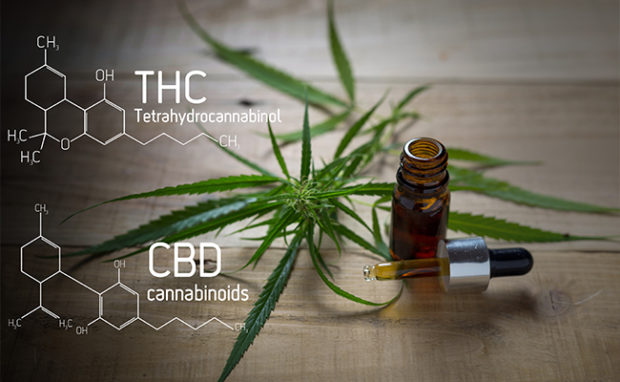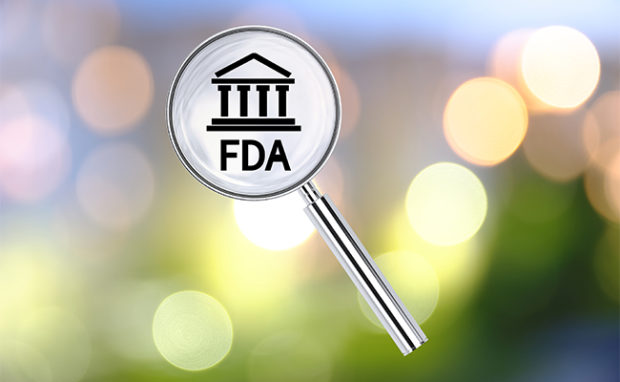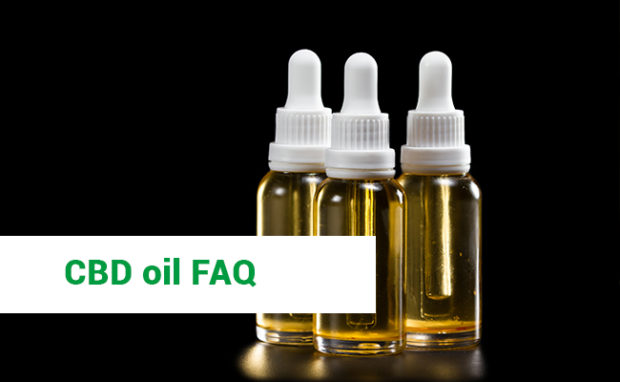Does CBD Oil Get You High? Here’s the Answer
Can CBD Oil Get You High?
As the United States becomes more acclimated to cannabis products, so does the number of questions surrounding cannabis and CBD oil.
Although cannabidiol does a lot of things to people, getting high isn’t one of them.
Anytime I discuss the benefits of CBD oil with my colleagues, I get these reactions:
- “Would I get high on CBD oil?”
- “Won’t I reach cloud 9 if I try CBD vape juice?”
- “No, I’m not interested! I just stopped smoking and I don’t wanna get high on CBD.”
This alludes that most people confuse CBD with THC. Both compounds come from a cannabis plant, but there’s a big difference between cannabidiol and tetrahydrocannabinol.
Let’s Discuss CBD and THC — the Big Differences
CBD and THC come from the same plant. However, there are some key differences between the two chemical compounds.
For starters, CBD is a non-psychoactive compound. CBD consumption will not cause intoxication or a “high.” THC, on the other hand, is a psychoactive compound. Consuming large amounts of THC can alter your state of mind and cause the infamous “high” associated with marijuana.
Secondly, these two compounds also interact with different receptors in the body. CBD acts on the 5-HT1a, TRPV1, GPR55 receptors, while THC acts on the CB1 and CB2 receptors.
Their interaction with the endocannabinoid system (ECS) produces different effects on the body. CBD relaxes you, whilst THC gets you high. Despite this, some effects of CBD and THC can improve overall health, depending on your desired effects.
Moreover, manufacturers infuse CBD in dietary and natural supplements more than they do THC.
Does CBD Get You High? Here’s the Short Answer
With CBD products making its rise in the trends, it’s a valid concern for consumers to know whether CBD can cause a high.
Consuming illegal substances that cause intoxication can result in legal complications. Furthermore, not knowing what you’re putting in your body can put you at risk.
It’s important to know that CBD is not the same as THC, its cousin compound. While both originate from cannabis, there are not the same.
THC is a psychoactive compound that alters your state of mind when consumed. CBD, on the other hand, is non-psychoactive and does not get you high.
There are CBD products labeled as full-spectrum CBD that contain trace amounts of THC. Nevertheless, reputable brands that sell full-spectrum CBD products contain no more than 0.3% THC. The trace amount of the THC compound is not enough to intoxicate you.
However, regular consumption of full-spectrum CBD in high doses can result in a failed drug test.
This is due to the body accumulating THC content, which is detected in drug screenings.
CBD Hints from the FDA and United States Law Makers
In the States, the widely-preached mantra used to be, “Not cannabis! Not Marijuana.”
The high tone of many anti-weed activists (names withheld) dropped significantly when the world realized weed is less dangerous than many legalized substances, like cigarettes and alcohol.
In fact, marijuana has no addictive constituent.
Though things that have no addictive attributes like food, sex, and workouts, have been reported to be abused.
People get addicted to anything that helps them forget their troubles temporarily. Therefore, cannabis plants and marijuana aren’t exceptions.
Furthermore, one hint everyone should learn from the Food and Drug Administration (FDA) and the United States lawmakers are their ability to make detailed research and weigh the effects of a concept or substance on public health before concluding on what to do with it.
The public is quick to judge the use of weed with no substantial evidence pointing against it. To worsen matters, certain individuals and organizations went to the extent of painting cannabis as the “devil’s plant.”
Thankfully, hemp-derived CBD was legalized across all states.
Related Articles
CBD Oil 101
After the legalization of weed, the FDA approved the use of Epilodex — the first-ever CBD drug to be approved in the USA.
According to FDA Commissioner, Dr. Scott Gottlieb, “Adequate and well-controlled clinical studies supported Epidiolex’s approval, so prescribers can have confidence in the drug’s uniform strength and consistent delivery that support appropriate dosing needed for treating patients with these complex and serious epilepsy syndromes.
“The FDA will continue to support rigorous scientific research on the potential medical uses of marijuana-derived products and stand ready to work with product developers who are interested in bringing patients safe and effective, high-quality products,” he further stated.
To date, Epidiolex is obtainable by prescription in all 50 states.
The anti-seizure drug is meant to be used twice per day by patients 2 and older people with the two conditions — Dravet syndrome and Lennox-Gastaut syndrome.
Does CBD Oil Get You High? Frequently Asked Questions and More!
Can You Put CBD Vape Juice Under Your Tongue?
- Though toxic when taken in high quantities, nicotine e-juices can be put under the tongue. Yes, but great care ought to be taken when using CBD vape juice via the sublingual route — the mucous membrane underneath your tongue. E-juices are not meant to be imbibed orally.
Can CBD Oil Cause Munchies?
- The term “munchies” refers to the sense of hunger typically associated with the consumption of alcohol or marijuana. The idea that CBD-infused products would cause munchies is wrong. Research shows that Tetrahydrocannabinol aka THC is the major cannabis compound causing increased appetite by binding with the CB1 receptor.
Effects of CBD Oil
- Understanding CBD oil and what it’s effects are directly correlated to the levels of THC the product you are the consumer contains. Variating levels of THC are found in cannabis products. Due to this, there are variating potential side effects.
How Long Do CBD Edibles Take to Work?
- Depending on the quantity taken and the nature of the user, CBD edibles take up to 30-90 minutes effect a change. Nevertheless, the best way to be certain about the duration is to study the time CBD works on you.
How Long Does CBD Last?
- When people ask me, “how long does CBD last?” I ask them, “How much do you take?” The duration required to CBD to stop working depends on the amount taken and your tolerance level.
CBD Oil Uses?
Lastly, there are many uses for CBD oil. Although research is still in its early stages, experts are hopeful for the following health benefits CBD may have:
- Pain: Back, Wrist, Neck, etc.
- Epilepsy
- Serves as an antidepressant
- Reducing inflammation
SUMMARY
Each and every day there seem to be more CBD products in the market. CBD has become wildly popular in the US and consumers everywhere can’t get enough of it.
Due to that, there seems to be a lot of hearsay when it comes to CBD oil and whether or not it gets you high.
To conclude, CBD oil doesn’t get you high.
CBD oil has a lot of great medicinal benefits and helps people all over the world cope with an array of ailments. People with chronic inflammation are placed on an anti-inflammatory diet. Anti-inflammatory foods come from industrial hemp which contains CBD.
We hope that you learned a thing or two and have a better understanding of the medicinal properties CBD oil.
Is CBD Legal? Hemp-derived CBD products (with less than 0.3 percent THC) are legal on the federal level but are still illegal under some state laws. Check your state’s laws and those of anywhere you travel. Keep in mind that nonprescription CBD products are not FDA-approved.
Published May 22, 2019; Updated March 1, 2020.





